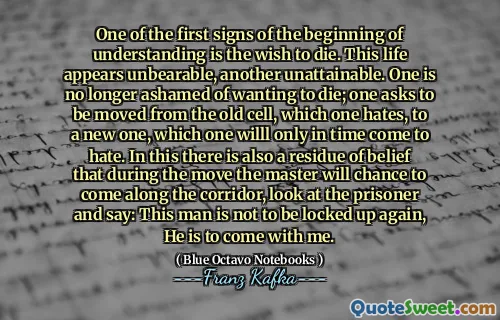Evil has ways of surprising one. Suddenly it turns round and says: "You have misunderstood me," and perhaps it really is so. Evil transforms itself into your own lips, lets itself be gnawed at by your teeth, and with these new lips -- no former ones fitted smoothly to your gums -- to your own amazement you utter the words of goodness.
The excerpt from Kafka's "Blue Octavo Notebooks" highlights the unpredictable nature of evil. It suggests that evil can shift unexpectedly, leading one to believe they have misconstrued its nature. This transformation can catch a person off guard, creating a sense of disbelief regarding one's own association with evil or wrongdoing.
Furthermore, Kafka implies that evil can intertwine with personal identity, as it manifests through one's own expressions and actions. As individuals grapple with these dualities, they may find themselves surprisingly articulating virtues despite harboring darker impulses. This complexity raises questions about the duality of human nature and the perpetual struggle between good and evil within oneself.






